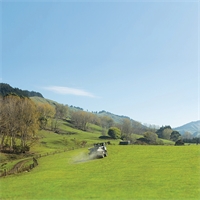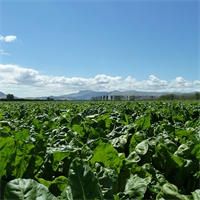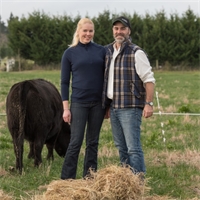30Aug
Agronomy Update Spring 2023
Words by Craig Rodgers, Ruralco Group Manager On-Farm Sales
Once again, we have seen some extreme weather through the winter period. While not as damaging as some previous years, the excess water across areas of Canterbury has been visually obvious for some periods. Although temperatures have been lifting recently, which will hopefully supply sufficient drying for spring soil preparation, September and October weather can still be temperamental. Spring’s variable weather and therefore variable soil temperatures can affect the establishment of pasture and crops and can result in multiple weed strikes.
Cereals
Some autumn-sown cereals have endured a wetter season than usual but seem to be handling the conditions well. Spring cereals may be sown later this year due to current conditions, and on some heavier soils this may not be until well into the spring. Early indications are that cereal sowings may be down on previous years with an easing in market pricing and minimal long-term contracts available. Most varieties remain available, with demand being driven by the recently released FAR cereal report. Demand remains for cereals for catch cropping and for cereal silage and whole crop options.
Pasture management
Initial indications are that there is some pasture damage from the few heavy wet spells throughout the winter. This will ensure some re-grassing in the spring as well as some renovation to partly damaged pastures. Protection of good pastures will be important over the next couple of months, especially when feed is required later in the spring. Most damage happens in this period as stock numbers return to pastures with wet and muddy underfoot conditions. Monitoring performance of each paddock during this period also helps identify those that are underperforming, dependent on their growing characteristics, and recovery from winter grazing damage. We are likely to see renovation of pastures also through the spring period as farmers monitor and plan out pasture renewal programmes. Once we have warmer conditions, keeping pasture cover within the optimal range of growth will help to achieve high growth rates, high utilisation, and high pasture quality.
Pasture renewal
There continues to be good discussion around the DairyNZ Forage Value Index (FVI) when selecting varieties. With the benefit of seasonal trends for each cultivar, it can help identify what will suit your farm. Not all varieties are the same, therefore it is important to have a good balance of pasture species to suit the climate, rainfall, and irrigation you have on your farm. Check out the FVI here.
There are some new pasture varieties available in the market this year. Indications from trial data is that these will see improved pasture performance across a range of new cultivars.
Competition
While the usual weed spectrum will be present this spring, it is important to remember any sort of competition affects the establishment of your crop or pasture. Removing weeds at the earliest possible stage should give your crop every possible chance to achieve its best yield potential. Monitor crops and pastures closely for emerging weeds and disease. Work closely with the person monitoring your crops and applying agrichemicals, and ensure recommendations are completed as early as possible.
Seed bed preparation
It is important to not take short cuts when preparing ground for drilling. A planned spray programme to eliminate the previous crop and weeds will be just as important as leaving the paddock long enough for chemical to actively work this year. While time may be against you through this period, the long-term reward of preparing and establishing a crop or pasture will outweigh a rushed job. It is important you put the time into preparing a good seed bed, which is vitally important for establishment of pastures and crops. Seedbed consolidation helps conserve moisture and allows a seed drill to achieve the correct sowing depth.
Fodder beet
Variable spring conditions can affect the initial establishment and growth of Fodder Beet crops. Sowing dates are once again a hot topic of discussion, but their success may come down to soil temperature, as sunshine hours can waver through September and October. The drilling of Fodder Beet is generally determined by the availability of contractors and locking in a set date can sometimes be the easiest, and then build your weed spray programme dependent on spring conditions. Varietal options available in the market will be similar to previous years and although there is always an urgency around the availability of some varieties, we have never run out in previous years, sometimes the odd variety may be in short supply however there is always a similar option available. It is important you are sowing a variety that will suit your system and requirements in the winter. Yield can be determined by the growing season and as has happened in the past, a cooler than normal spring meant it is harder to get crops established and keep the weed competition at bay.
Related

There are several factors that contribute to low magnesium (Mg) levels in pasture and stock. Soil an...
Read More

Mid Canterbury farming folk have been treated to a fantastic display of all things agricultural at t...
Read More

Ruralco has appointed the co-operative’s GM People and Culture, Tony Aitken as its Group CEO.
Read More

What started as a plan to diversify their property, is now a blooming cottage industry for a Mid Can...
Read More

Fodder beet remains a staple option in our ne w operating environment, where there is a focus on lan...
Read More

What do Lowline Angus cattle, Suffolk sheep, Argentine barbecues and academia have in common? They r...
Read More